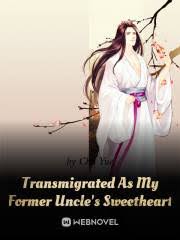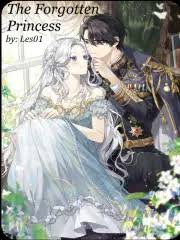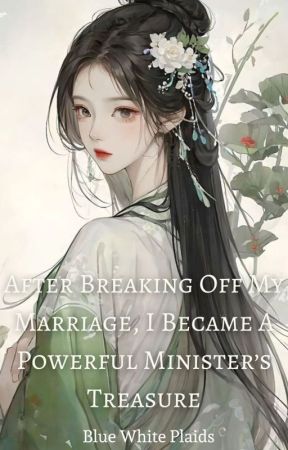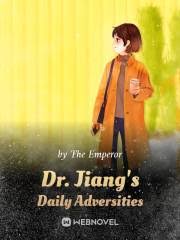The Story in 3 Sentences
Lu Liangwei awakens inside the body of a doomed side character from a historical romance novel she had just finished reading, thrust into a world where her original fate was to be humiliated, discarded, and forgotten.
Armed with knowledge of the plot and her modern sensibilities, she defies her scripted destiny by navigating aristocratic schemes, rewriting relationships, and asserting her autonomy in a rigidly hierarchical society.
Her journey transforms her from a ridiculed pawn into a respected figure who not only secures her own happiness but reshapes the fates of those around her, especially the man once labeled her “former uncle.”
Why It Stands Out
1. The Meta Twist of Narrative Awareness
Unlike typical transmigration tales where the protagonist merely survives, Lu Liangwei actively deconstructs the toxic tropes of the original novel, turning passive suffering into strategic empowerment. Her self-awareness isn’t just a gimmick—it’s the engine of her rebellion, allowing her to expose hypocrisy, outmaneuver rivals, and redefine love on her own terms.
2. Emotional Nuance Over Melodrama
While many josei romances lean heavily on exaggerated conflict or histrionic declarations, this novel thrives on quiet tension and layered character dynamics. The slow-burn romance avoids clichéd possessiveness, instead building intimacy through mutual respect, shared vulnerability, and the gradual dismantling of societal masks.
3. Historical Texture with Modern Heart
Set against a meticulously rendered historical backdrop, the story never loses sight of its contemporary soul. Lu Liangwei’s internal monologue—wry, pragmatic, and refreshingly unromantic about grand gestures—anchors the fantasy in relatable human experience, making her triumphs feel earned rather than fated.
Characters That Leave a Mark
There’s Madam Zhou – the sharp-tongued matriarch whose icy exterior hides a deep-seated fear of losing control over her family’s legacy, yet whose grudging respect for Lu Liangwei becomes a quiet turning point in the household’s power structure.
You’ll meet Shen Yurou, who initially appears as a jealous rival but gradually reveals herself as a tragic figure trapped by expectations, her bitterness masking a desperate longing for genuine affection and autonomy in a world that offers her none.
And Lord Wei? They’re the one who serves as both political foil and reluctant ally to the male lead, his calculating demeanor masking a hidden loyalty to Lu Liangwei that emerges during a critical succession crisis, proving that not all nobles are mere pawns of tradition.
The Flaws Fans Debate
Some readers criticize the repetitive nature of aristocratic scheming in the middle chapters, where rivalries often recycle similar confrontations without significant escalation.
A portion of the audience finds the age-gap dynamic uncomfortable, despite narrative attempts to reframe it through emotional maturity rather than power imbalance.
Others note that while Lu Liangwei is clever, her victories sometimes rely too heavily on the original novel’s plot convenience rather than organic problem-solving.
Must-Experience Arcs
Ch. 1–45: The Awakening Arc – Lu Liangwei wakes in the body of a disgraced young lady on the verge of suicide, quickly deduces her identity from the novel’s plot, and stages a public recovery that shocks the capital and draws the attention of the enigmatic former “uncle.”
Ch. 600–720: The Dowager’s Gambit Arc – When the imperial court intervenes in noble succession, Lu Liangwei must navigate a web of forged wills, poisoned banquets, and secret alliances, using her knowledge of future events to protect her household while concealing her transmigrated nature.
Ch. 1700–1833: The Sovereign’s Choice Arc – In the final chapters, Lu Liangwei faces a moral reckoning when offered a chance to return to her original world; her decision to stay—and the quiet ceremony where she renounces her past life—cements her transformation from interloper to rightful heir of her own destiny.
Killer Quotes
“Knowing the script doesn’t make you the author—it makes you responsible for rewriting the ending.”
“Fate gave me a role written in ink. I chose to bleed my own story onto the page.”
“They called me a fool for loving him. But fools are the only ones brave enough to believe in second chances.”
Cultural Impact
The novel sparked widespread discussion on Webnovel forums about the ethics of transmigration protagonists altering “canon” relationships, with fans debating whether Lu Liangwei’s actions liberated or erased the original characters.
Its 6.8 million views and consistent top-200 ranking on Webnovel placed it among the most-read completed josei romances of 2024, influencing a wave of similar “transmigrated side character” stories.
Memes comparing Lu Liangwei to a “historical HR manager fixing toxic workplace dynamics” went viral on BookTok, highlighting the novel’s blend of romance and social critique.
Final Verdict
Start Here If You Want:
A transmigration story where the protagonist’s intelligence is her weapon, not just her charm.
A romance built on mutual growth rather than obsession or rescue.
A historical setting that feels lived-in, not just a backdrop for melodrama.
Study If You Love:
Narratives that interrogate the passive female archetype in classic romance tropes.
The intersection of fate, free will, and metafiction in East Asian web literature.
Subtle explorations of class, legitimacy, and gendered power in pseudo-historical societies.
Avoid If You Prefer:
Fast-paced action or supernatural battles over emotional and social maneuvering.
Strict adherence to historical accuracy without modern psychological framing.
Stories where the female lead remains emotionally reactive rather than strategically proactive.





